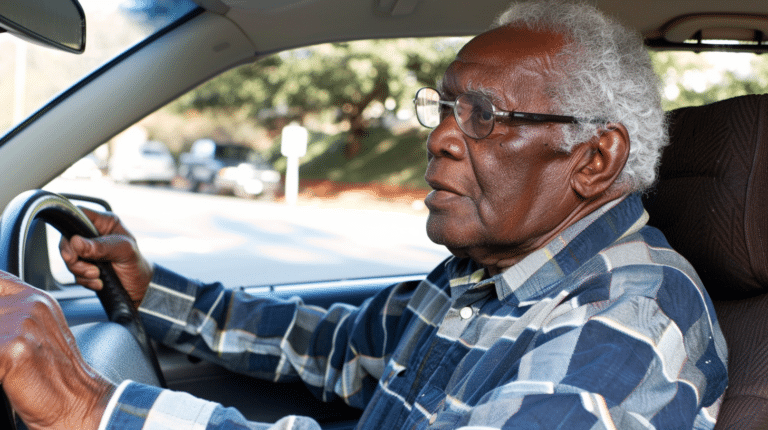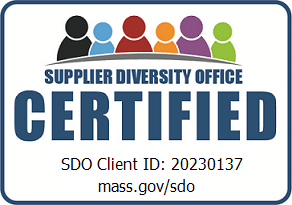Not everyone who ages has to give up driving. Many seniors continue to drive safely and responsibly their entire lives. That said, there are health issues that can impair your loved one’s ability to drive safely and should be considered, especially if you notice any of the warning signs that your loved one (and others) may not always be safe on the road when he’s behind the wheel. Here are a few signs that it might be time for your senior to rely on non-medical transportation from a home care agency.
Four Clues that Your Loved One is Struggling to Drive Safely
There may be perfectly good reasons for some of these things to happen when your loved one is driving, but if you see a pattern or if they are happening more and more often, you might need to have a chat about eliminating or reducing when he can drive.
- He’s gotten more moving violation tickets than he used to. It could be running a red light, not pulling over for an emergency vehicle or a myriad of other moving violations.
- There are unexplained dings and scratches on the vehicle. Your loved one might be having perception struggles making it a challenge to get in and out of tight spaces while driving.
- He’s gotten lost several times when driving someplace or trying to come home.
- Friends or family members say they no longer feel safe riding with him when he’s behind the wheel.
Health Issues that Can Interfere with Good Driving
While not all of these health issues will automatically create behind-the-wheel issues, they could make it more difficult for your loved one to drive safely.
- Cognitive Issues. Whether brought on by a disease like dementia, or a side effect of a medication, if your loved one doesn’t have a clear mind and cannot accurately interpret all of the activity on the road, he can be a danger to himself and others.
- Arthritis. Occasionally, stiff joints can interfere with a person’s ability to drive and react to changes on the road in time. Arthritis may also make it too painful for your loved one to sit behind the wheel for an extended time.
- Vision Problems. If your loved one struggles with night vision loss or any eye problems that distort or hinder part of his vision area, he should not drive in any way or form.
- Hearing Problems. Without the ability to hear well, your loved one may miss important sounds that he needs to react to while driving like emergency vehicle sirens or another vehicle honking to prevent him from hitting them.
- Nerve issues. If your loved one has a condition that affects the nerves in his hands or feet, it can make it hard for him to use them as needed when driving.
- Fatigue. Being overly tired can make driving extremely dangerous by slowing down reflexes and even possibly leading to falling asleep behind the wheel.
Safe, Non-Medical Transportation for Your Senior
Just because your loved one can’t drive, doesn’t mean he doesn’t need to get places like appointments, or run errands. Finding safe transportation for him is paramount to helping him stay independent. A home care assistance team can step in and help with non-medical transportation needs he may have by providing safe and reliable rides to and from his desired destination. Knowing he has someone trustworthy to help with his transportation needs, can help your loved one give up the keys to his car much more easily.
If you or an aging loved one are considering non-medical transportation in Weston, MA, please contact the caring staff at PlatinumCare + today. Call (617) 237-0867.
PlatinumCare + was born out of the desire and passion to provide the very best home health care possible in Brookline, Dover, Newton, Needham, Watertown, Weston, Cambridge, Lincoln, Sudbury, Belmont, Boston MA, and surrounding areas.
Timothy’s journey spans decades of Managerial experience in IT Operations, Support, and Financial Management, where he honed his skills in creating seamless and technologically efficient systems. His expertise ensures that Platinum Care + operates with precision and reliability, providing a backbone of support that empowers our care services to run effortlessly. His strategic mindset allows us to integrate technology and care to enhance our clients’ experiences and the firm at large.
Brenda brings a wealth of experience in client relations, healthcare services, and sales management. Her innate ability to connect with people and understand their needs drives our client-focused approach. Brenda’s passion for nurturing relationships ensures that every interaction with Platinum Care + is warm, attentive, and deeply respectful of each client’s unique journey.
Both come from a storied and extensive background where community-based homecare was the norm. In their communities, caring for aging or ailing family members was a collective responsibility shared with compassion and unwavering support. This ethos of community care, where love, sacrifice, and empathy are paramount, forms the core of how Platinum Care + approaches homecare. Loving care, deep compassion and comfort.
By blending their unique skills and experiences, Timothy and Brenda have created a sanctuary of care beyond mere service delivery. Their shared mission is to cultivate an environment where clients feel empowered, understood, and cherished. At Platinum Care +, we are more than just caregivers; we are partners in your well-being journey, dedicated to making every moment meaningful and enriched with compassion.
Platinum Care + is where your health and happiness are our greatest priorities. Our commitment to unmatched excellence is reflected in every smile, every touch, and every service we provide.
- How Companion Care at Home May Help Seniors Feel Less Anxious - May 9, 2025
- Making Connections, One Visit at a Time - April 11, 2025
- Six Reasons Driving May Become Too Dangerous for Your Senior - March 27, 2025




